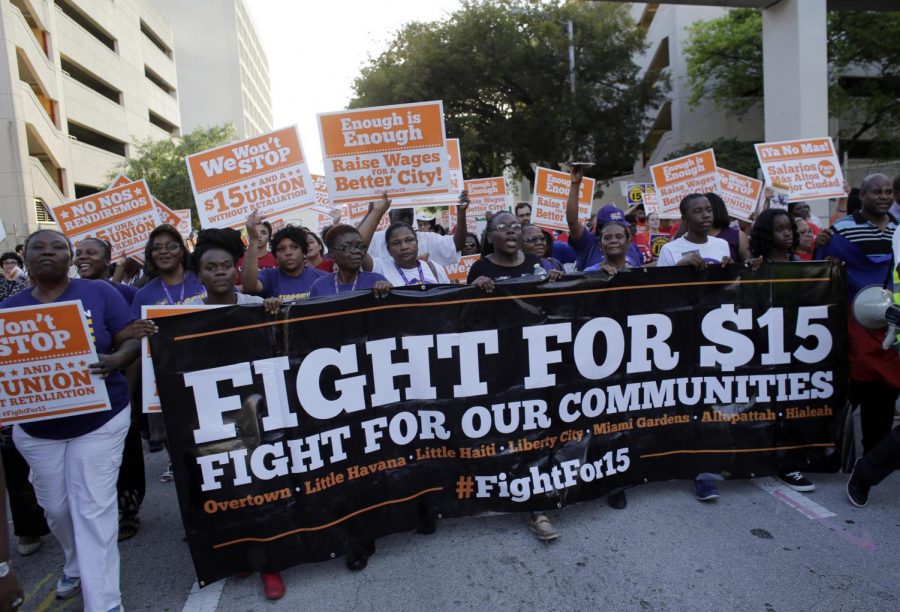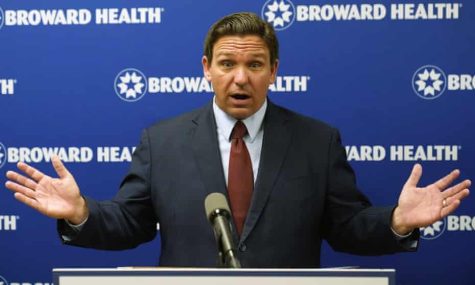Florida’s four new constitutional amendments, going into effect on Jan. 1, will impact the OH student body
Florida’s Amendment 2 raises the state’s minimum wage to $10 an hour effective Sept. 30, and will increase it one dollar per year until it reaches $15 an hour in 2026.
In the course of the 2020 November election, Florida citizens voted on six proposed amendments to the state constitution. The amendments ranged from only granting Florida citizens voting rights to raising the minimum wage. In order for a proposed amendment to pass, thereby changing Florida’s constitution, it must receive 60 percent of the vote in favor of the amendment.
Of the six proposed amendments, four of them obtained the 60 percent in favor vote needed to make them law and they will go into effect on Jan. 1, 2021. While a small number of the Olympic Heights student body is old enough to vote, the amendments that were passed will still have a tremendous impact on many students as well as their families.
Amendment 1, which will require citizenship in order to vote in Florida elections, passed easily with 79.3 percent voting in favor. As a result, the words “every citizen” will be changed to “only citizen” in Florida’s constitution. While this amendment may not affect every OH student, it will definitely affect some, as well as future Florida elections.
Florida’s minimum wage will be raised as a result of Amendment 2’s passing. According to The Americano News, this amendment “will raise Florida’s $8.56 per hour minimum wage to $10 per hour effective Sept. 30, 2021.” Florida’s minimum wage will then “increase by $1 per year until it reaches $15 per hour in 2026.” This amendment, which barely passed with 60.8 percent voting in favor, will certainly affect the OH student body, as many students have jobs that pay by the hour.
Amendment 3 would have established an open primary system in Florida. As of now, Florida’s closed primary system only allows voters who are registered members of political parties to vote for respective party candidates or nominees for an office in a primary election including the presidential primary elections. According to The Americano News, Amendment 3 would have had all candidates running for office appearing on the same primary ballot with the two highest vote-getters, regardless of party affiliation, moving on to the general election.” Though Amendment 3 received 57 percent voting in favor of the change, it fell three percent short of the required 60 percent to pass. As a result, Florida will remain a closed primary state.
Amendment 4 would have required all future proposed amendments or revisions to the state constitution to be approved by the voters in two elections, instead of one, in order to take effect. Florida voters rejected Amendment 4 with 52.5 percent voting against it. In fact, Amendment 4 was the only proposed amendment to have a majority of voters voting rejecting it.
Amendment 5 which was passed with a 74.5 percent majority deals with the limitation on homestead assessments. According to First Coast News, this amendment will “allow a person to transfer ‘Save Our Home’ benefits within three years instead of two.” Local 10 says, “Amendment 5 [will] extend that window to three calendar years. The extension would help homeowners who make their moves later in the year.”
Amendment 6, proposing a tax discount for spouses of certain deceased veterans who had permanent, combat-related disabilities, passed overwhelmingly with 89.7 percent voting in favor. Previously, veterans who are disabled or honorably discharged in combat receive a discount on their property tax. However, that discount abruptly ended when the veteran died. Amendment 6 allows for the veterans’ spouses to continue receiving the discount.
The four amendments that passed bring a promising and exciting future for Florida. And while OH students may not realize it, all of them will have at least an indirect impact on even those who are too young to vote.











